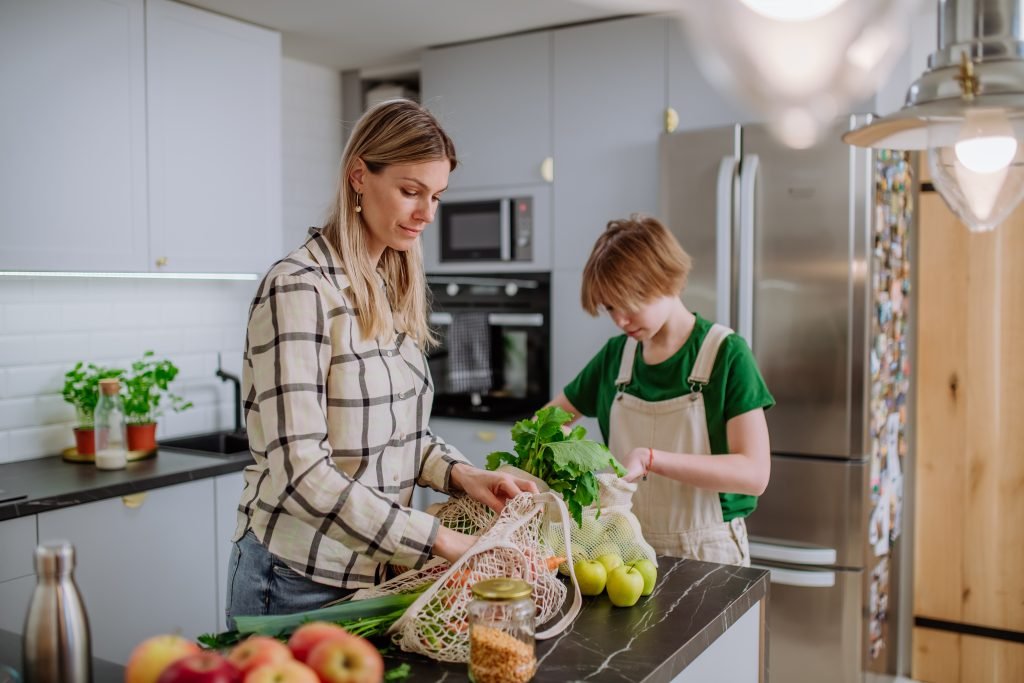Noor youths born in the midst climate crisis, we grow up with it and will probably have to deal with it for the rest of our lives. Too often, however, our environmental commitment is not understood by our parents’ generations or older siblings. Here’s how to get them to share our activism
According to the BBC, it is young people who rank among the most powerful climate leaders in the world, demanding concrete and sudden action, organizing demonstrations, confronting presidents of state and, according to Pope Francis, making noise. Among these leaders, the names of Greta Thumberg, Vanessa Nakate or Kenyathe girl who spoke during COP26 and many others, even less well-known but who behind the scenes are stirring the action of masses of peers.
Everything makes so much sense. Furthermore, the effects of climate change will have a greater impact on new generations than previous ones. However, real decision-making power still rests in the hands of those who have been adults for many years, including family members

Cultures
Environment: women changing the world (saving it)
So what do you do if, in addition to being an activist at big climate conferences, you also want to change things at home? As paradoxical as it is, sometimes it seems easier to talk about it to the powerful of the land than to your siblings or parents, I realize.
You want to go vegan, you want to buy certified products, you want to change your light director, but you still don’t pay for all this! You have in front of you a wall of beliefs and convictions ingrained over the years, you have little authority in environmental matters for the simple fact that “you are young” and let’s face it, changing people’s habits is not easy.
But today I want to give you some small suggestions to solve the problem!
Step 1: Talk about it
Don’t come to the table with the new family management rules in hand, you won’t get anything done. Instead, show an interest in environmental issues and maybe talk about them. Often during the news there are reports on the topic, take the opportunity and open the discussion. Tell us about a fact that you have studied or that worries you. Hear what they think and… take note!
Step 2: Be prepared
You are at a disadvantage and cannot afford mistakes. In his speeches he brings scientific facts, papers and numbers. In their eyes you will gain authority and they will begin to see you as the point of reference on the subject. This is true when you talk about rising seas as well as when they ask you, cod, where to throw the tetrapack!
Step 3: Teach through others and do it smartly
The Internet is full of interesting documentaries, from the world of fast fashion to the world of melting ice, passing through those in intensive cultivation. Does your sister like Leonardo DiCaprio? Excellent, he made 2 self-produced films on the subject. Does your mom like to read? So, give her a book on one of these topics and start with the one that seems to be closest to her heart, not yours! Help them familiarize themselves with the technical terms: climate change, global warming, greenhouse gas emissions….
Phase 4: always start from the main needs of the people around you
Looking to switch your family’s diet to vegetarian or vegan, there’s nothing better than taking advantage of a parent’s minor ailment. Let me explain better, some of our relatives could suffer from high cholesterol, have some cardiovascular problems or weight problems and so on… fantastic, nothing better than finding a scientific article that talks about it (there are dozens of authoritative sources from real sources ) and start by saying: “you know mom, I’ve read a lot of articles like this where it’s recommended to cut back on meat for your problem”. At this point you could add: “well actually by eating more vegetables we are also doing good for the planet, the food industry is the second cause of climate changing emissions”
Step 5: Reap the benefits
You will find that after you have watched documentaries or read books and articles about fast fashion, plastic, intensive farming, pesticides and so on… they will be more open to your requests and probably won’t even have to insist too much! Offer to cook on Sunday, don’t tell them it’s vegan and see how they react, or go shopping with them and try to buy some vegan products. Very often there is a belief that they cost more and in fact those that simulate meat or are highly processed are actually at least as expensive as meat, but this is not the case for example legumes (excellent source of protein), tofu or many others products that can be used for delicious recipes! Bring recyclable bags and when you buy clothes, buy a certified item and tell them it will last you longer.
Remember to go step by step, change cannot be achieved in a week! Then remember not to use the scare strategy and mostly start with the things that are easiest for them to do!

